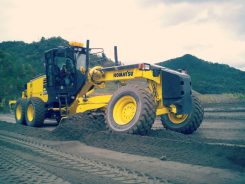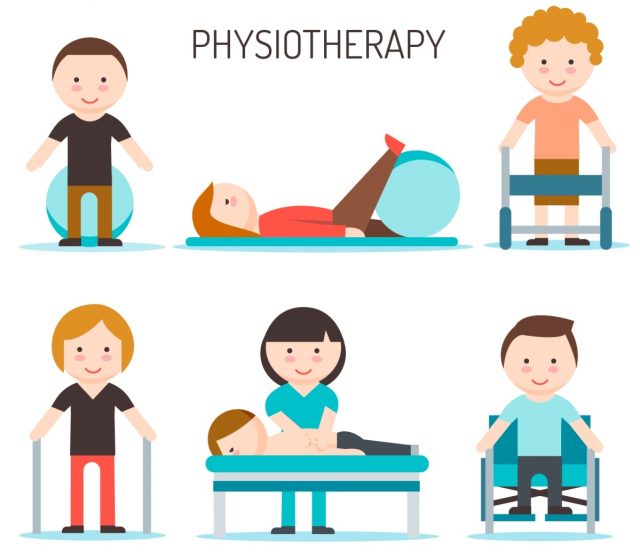Elderly people are likely to suffer from a range of health conditions which a professional physiotherapist can help with.
However, most people are unaware of how the process works for the elderly and how physiotherapy can be accessed for the elderly.
Let us understand the process and the way it allows the elderly to recover from their health condition effectively and healthily.
How does a Physiotherapist help?
Physiotherapists, who are trained in handling elderly patients, mainly focus on improving the body movements of the patient. They plan and design the physiotherapy exercises which are targeted at building their core strength and enhancing their mobility. Elderly patients have specific needs and numerous medical conditions which need to be treated with precise attention.
An experienced physiotherapist assesses the patient’s conditions and treats one condition at a time which ensures that the results are always satisfactory.
Any of the body functions that have been hampered due to an injury or disease, can be effectively restored in the elderly with the help of physiotherapy. Elderly patients who need extended care at home under the guidance of an expert can rely on physiotherapy services for lasting healing and a better quality of life.
Physiotherapy can help with following health conditions in the elderly
As stated above, a Physiotherapist can help elderly patients with a range of medical conditions. Some of the commonly treated ones include:
Fractures: Doctors often recommend rehabilitation to elderly patients in case of broken bones. The most common causes of broken bones are a fractured hip or wrist. The best way for effective rehabilitation is physiotherapy where the exercises are focused on improving bone strength and restoring lost mobility.
Musculoskeletal problems: The physiotherapy process can effectively help patients overcome the discomfort and pain that they usually experience because of their various musculoskeletal problems. These problems include lower back pain, knee pain, neck pain, hip pain, and pain that occurs in other muscles, joints, and ligaments.
Osteoporosis: With growing age, the elderly often suffer from weakened bones which restrict their movement and mobility. However, with the help of physiotherapy, their back muscles can be strengthened and with the help of different exercises, they can also be encouraged to do weight-bearing and aerobic exercises which will further improve their bone density.
Dementia and frailty: If the patient is suffering from dementia and frailty, different exercise forms in physiotherapy can help in promoting mental activity, the mobility of joints, muscle strength, and body balance. A physiotherapist also helps the family members in knowing the right way of safely moving the frail elderly people in the house. This way, everyone is prepared to look after the elderly patient in the right manner.
Osteoarthritis and various other arthritic conditions: Arthritis is a common problem faced by the elderly, of which osteoarthritis is the most commonly occurring problem wherein joint pain restricts the patient’s mobility. Various exercises in physiotherapy can help with painful joints and help the elderly maintain joint movement as well as strength. Moreover, the physiotherapist even assists the family members of the elderly patient in dealing with pain management, setting up an activity schedule, and the right way of using the walking aids.
Parkinson’s disease: Physiotherapy even helps in improving arm function, walking posture, and balance through various exercise forms, in patients who are suffering from Parkinson’s. The exercises allow the elderly patients to make movements that are safer, easier, and more controlled.
Falls: Elderly patients are extremely prone to falls. If there is an elderly patient in your house, who has suffered a fall, physiotherapy can help in improving their muscle strength as well as body balance. The process not only treats the current condition but also helps in preventing future falls in the elderly.
Stroke: A physiotherapist who specializes in treating neurological disorders can help elderly patients who suffer from conditions like muscle spasms, paralysis, postural control loss as well as the various functional difficulties that they suffer from following a stroke attack.
Apart from the above-mentioned conditions, a physiotherapist can even help elderly patients with various other problems such as lung problems, heart problems, or the case of incontinence.
Kinds of Physiotherapists You Can Seek Help From
While physiotherapy can help in treating and managing the various health conditions in elderly patients, there are some key areas where the physiotherapist holds specialization. Approaching the right physiotherapist for a precise condition will prove more fruitful and effective. Physiotherapists based on their specialization can be classified as:
Musculoskeletal physiotherapists: They specialize in helping patients who happen to be suffering from problems related to their joints, muscles, and ligaments of the body’s moving parts. The treatment majorly includes tissue manipulation, mobilization techniques, soft tissue treatments, exercise, and electrotherapy.
Neurological physiotherapists: They specialize in treating the health conditions that majorly affect the nervous system of the elderly. These conditions include stroke, Parkinson’s disease, head injuries, and multiple sclerosis. you can learn more about the Neurofeedback Therapy for Trauma.
Other physiotherapists usually specialize in caring for elderly people who need palliative care; as in the case of cancer, the health of elderly women, rehabilitation post heart and lung diseases, osteoporosis, and prevention of falls.
Physiotherapists can help elderly patients with a range of conditions and guide them to overcoming pain and discomfort while also helping them improve their quality of life.
















































































